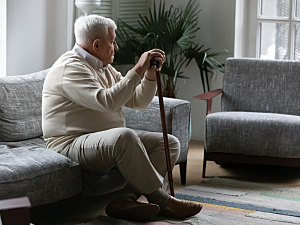Physicians’ Health Study Suggests Long-term Aspirin Use Could Help Preserve Mobility

Brigham and Women’s Hospital researchers used the Physicians’ Health Study I to study the relationship between long-term aspirin use and self-reported walking speed. They report men who started aspirin use in middle age had greater probability of faster walking speeds in late life than men who reported low aspirin use.
Read More...







